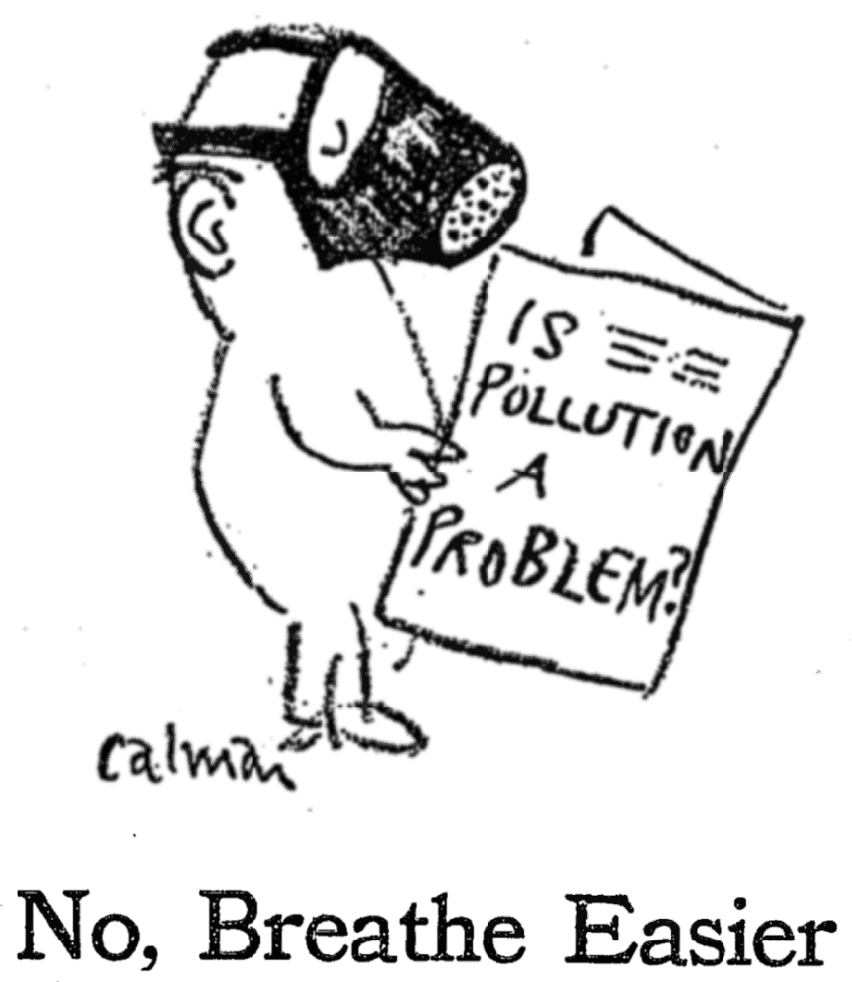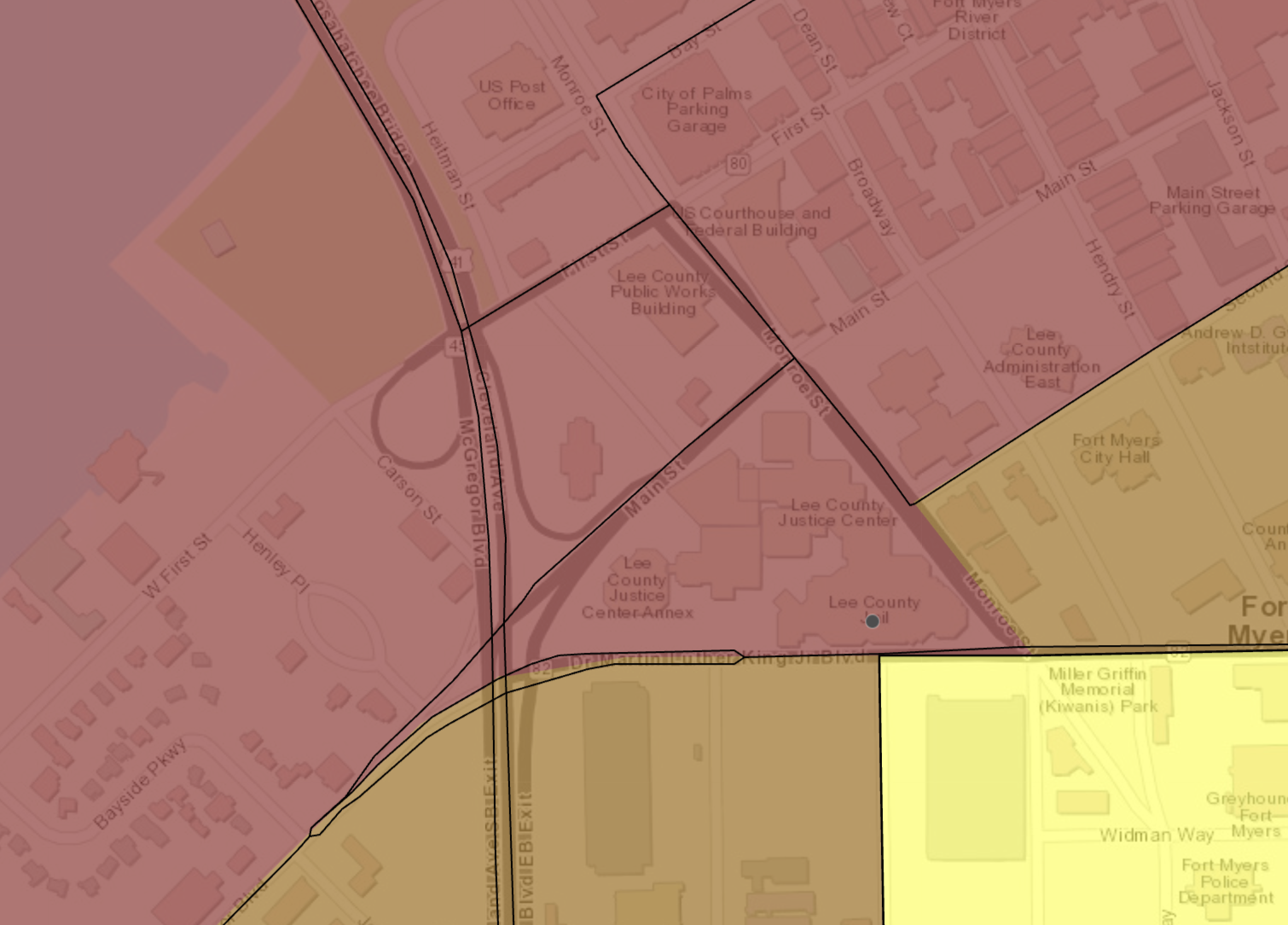 The public
mockery of “environmentalists” for concern about climate pollution began
with a The New York Times op-ed by an Ayn Rand
acolyte on August 28,
1971. Published with the headline “No, Breathe Easier,” mining executive
and propagandist Eugene Guccione falsely claimed that “we are winning
the war on pollution” and then called the greenhouse effect “idiocy”.
The public
mockery of “environmentalists” for concern about climate pollution began
with a The New York Times op-ed by an Ayn Rand
acolyte on August 28,
1971. Published with the headline “No, Breathe Easier,” mining executive
and propagandist Eugene Guccione falsely claimed that “we are winning
the war on pollution” and then called the greenhouse effect “idiocy”.
Unaware that particulate concentration is decreasing, “environmentalists” talk about the New Ice Age Theory. The build-up of dust in the air, so goes the argument, will screen out the sun and we’ll all be turned into ice.
Then there is the Greenhouse Effect Theory. The build-up of carbon dioxide in the atmosphere, so goes this particular idiocy, will cause a temperature increase throughout the planet… and we’ll drown in the tidal wave resulting from the melting of the polar ice caps, or roast to death.
These so-called theories contradict each other. We cannot both freeze and roast at the same time. It’s either or. But relax. It’s neither. We won’t freeze because there is no such thing as a build-up of particulates in the air, as lots of tests indicate. Nor will we roast because at the present level of carbon dioxide in the atmosphere it would take about 957 years to triple the current level. Such speculations have no more scientific validity than the prediction that my puppy dog, at his present growth rate, would be fifteen feet long and weigh 900 pounds at age five.
The next week, the Times published a response from climate scientist Stephen Schneider, noting Guccione’s op-ed was both factually wrong and dangerously optimistic about the threat of pollution-induced climate change.
Guccione, a chemical engineer who embraced the ideology of free-market economists such as Friedrich Hayek and Alan Greenspan, was then the editor of Engineering & Mining Journal. He later edited Mining Engineering journal and chaired the Mountain States Lime cement plant in Utah as well as the free-market Committee for Monetary Research and Education. He continued to rail against environmental legislation for impeding the coal and oil industries, argued for subsidizing the domestic oil industry to compete with the Soviet Union, and fulminated against taxation as a form of mugging.
By the 1980s, the Times was running regular climate-denial advertorials from Mobil (and after a merger, ExxonMobil) on its op-ed pages into the 2000s. The tradition continued in the Internet age with dynamic greenwashing Web campaigns co-developed by the Times and ExxonMobil.
Full text of the Guccione op-ed:
